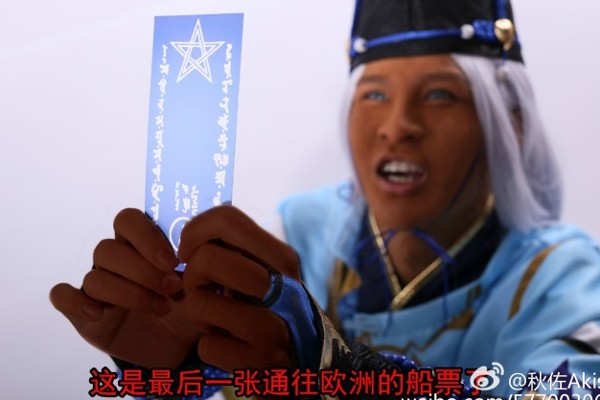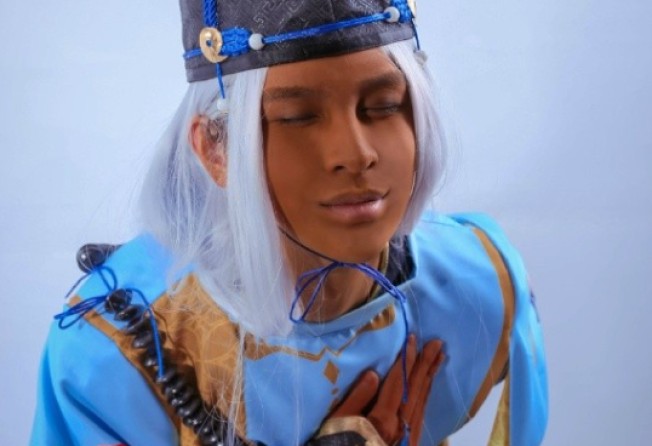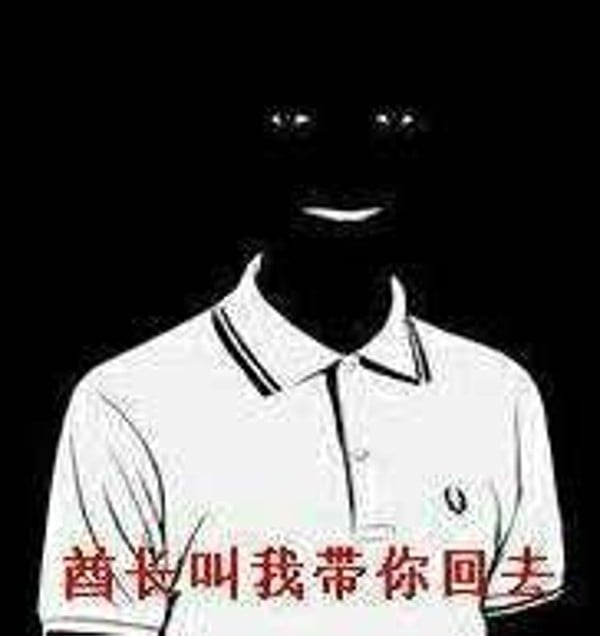
In China’s gaming world, lucky ‘Europeans’ and unlucky ‘Africans’ expose racial stereotypes
While players say popular descriptors are not intended to cause offence, critics see them as ‘verbal microaggression’ and inappropriate

Within China’s vast online gaming community, a new phenomenon has emerged that puts racial stereotypes in full view – lucky players are known as “Europeans”, while unlucky players are referred to as “Africans”.
“Am I an African or a European?” one player asks on social network Baidu Tieba. He has just received his characters in a lucky draw for Warship Girls R, a naval battle simulation game from Shanghai-based Moe Fantasy.
Everyone knows what he is talking about – and it’s not his nationality or identity. He will be considered “European” if the characters are good, or “African” if they are weak.
The use of European and African as synonyms for fortune and misfortune has become so popular among online gamers in China that entering the two words into search engine Baidu will produce a long list of results that have nothing to do with geography or anthropology. On Baike, the Chinese version of Wikipedia, there is an entry for “African” as an “online expression” to describe those who are “unlucky” or “do poorly” in online games.
These descriptors are now widely accepted in the online gaming community, according to Zoe Guan, who plays Onmyoji, a fantasy strategy game for mobiles developed by NetEase.
“We say someone who is unlucky has a black face, so we call them ‘Africans’ jokingly,” she said. “There’s an old Chinese saying that someone is ‘black on the forehead’, meaning that misfortune is coming – that might be where the ‘black face’ comes from.”
Guan admitted it was “a bit racist” but said few gamers had questioned the use of these words as synonyms.
NetEase declined to comment.

They appear to have entered gaming language five years ago, when a number of Chinese began playing Kantai Collection, developed by Japan’s Kadokawa Games.
“These terms for ‘black and white faces’ began to surface then,” according to Avalon Li, who plays the online game. Players take on the role of an admiral in the game, and began using “African admirals” and “European admirals” to describe those who were unlucky in the characters they got, versus those who were lucky, Li said.
The terms are still evolving, with “African tribal chief” now used to describe the unluckiest players, while “European emperor” refers to the most fortunate. If there is a turnaround in a player’s fortune they are described as “stealing into Europe from Africa”.
Gamers can also be seen in images and videos posted on social media mocking themselves as unlucky. One popular video shows several gamers in leopard print costumes with dark make-up and tattooed faces doing a tribal dance and singing about being “African tribal chiefs”.
The use of such language has so far remained within the online gaming community, and players say it is for fun and not intended to cause offence. But observers say it reflects subtle racism among Chinese youth that has potential to spill over into the real world.
Accusations of racism frequently surface in China. Most recently, a comedy sketch on the country’s biggest and most popular Lunar New Year television show caused uproar for using a Chinese actress in blackface and giant fake buttocks to depict an African character, and a black performer playing a monkey. Foreign ministry spokesman Geng Shuang denied state broadcaster CCTV’s show was racist and said Beijing “has always opposed any form of racial discrimination”.
Meanwhile in 2016, a laundry detergent company apologised for a television commercial showing a young Chinese woman stuffing a black man into a washing machine before he reappeared as a pale-skinned Chinese man.

Niesha Davis, a writer and editor in Shanghai, said online gamers using “African” to describe misfortune was a form of “verbal microaggression”.
“When using ‘African being black’ and ‘European being white’, it perpetuates a racial stereotype ... and perpetuates a culture of negative connotations pointing towards black people, and faux superiority towards whiteness,” Davis said.
Yinghong Cheng, a professor at Delaware State University who specialises in modern China, said the use of the language was inappropriate and wrong.
“It essentialises blackness with African and connects them to a less lucky, meaning inferior, status,” Cheng said, adding that “tribal chief” and “emperor” implied a “civilisational difference between two racial groups”.
China has invested heavily in Africa for many years, and in September will host a China-Africa summit in Beijing, which “will surely set off a new upsurge of China-Africa friendly cooperation”, the foreign ministry said last week.